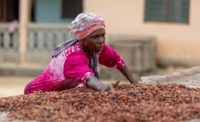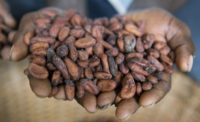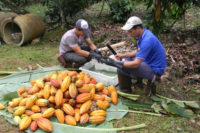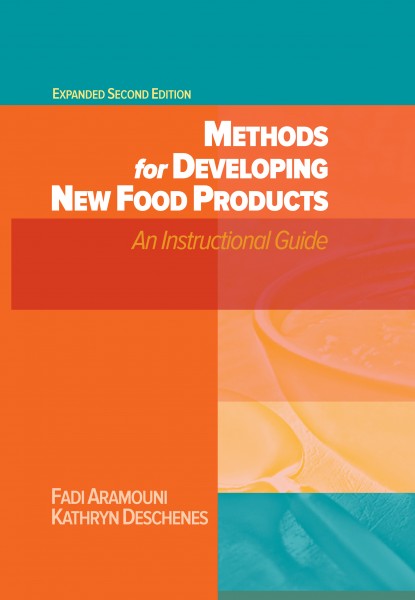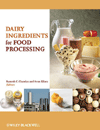We were recently able to talk to Gretchen Hadden, marketing communications manager, Cargill, about its Cargill Cocoa Promise, as well as how the company is focusing on sustainability.
Liz Parker: Can you talk about the Cargill Cocoa Promise and it’s 10-year anniversary?
Gretchen Hadden: Absolutely! The Cargill Cocoa Promise is the cornerstone of our cocoa sustainability efforts in Cote d’Ivoire, Ghana, Cameroon, Indonesia, Brazil, and more recently Ecuador. It helps farmers and their communities achieve better incomes and living standards while growing cocoa sustainably. In the 10-years since its inception, we’ve touched the lives of approximately 250,000 farmers, spanning six cocoa-producing countries and encompassing more than 100 collaborative projects.
While farmers and their communities have always been at the center of the program, our ambitions have grown through the years to encompass a broader range of economic, social, and environmental issues. For example, as part of our efforts to protect children and support local communities, we’ve invested to increase access to quality education. In 2022 alone, we built and handed over 17 schools in Ghana, Cameroon, and Côte d’Ivoire, thus supporting education for hundreds of children. We’ve also worked to eliminate other barriers, such as helping thousands of families secure birth certificates for their children, an important first step to accessing education.
We believe in adult education, too. At the end of last year, we held a graduation ceremony for the first class of 700 cooperative leaders to complete our renewed Coop Academy. This is our flagship program to equip farmers with the professional skills and financial support to strengthen their cooperatives and shape a brighter and more sustainable future for the sector.
Other efforts are laser-focused on critical issues like forest preservation. We use innovative GPS polygon technology and satellite data to see and quickly address possible deforestation risks and land use changes across farms in Ghana, Cote d’Ivoire, Brazil, Cameroon, and Indonesia. As of 2021, we have mapped 70% of the farmers in our direct supply chain, helping to protect forests today and for years to come.
Further, because we believe cocoa farming and forests can co-exist, we’ve helped nearly 22,000 cocoa farmers adopt agroforestry practices, which help reforest areas while also supplementing farmers’ incomes. To date, we’ve planted more than 1.2 million trees, which as they grow and develop, have the potential to sequester nearly 137,000 metric tons of carbon dioxide equivalent by 2040.
That’s just a small sampling of the work we’ve done—but we haven’t done it alone. Bringing transformative change to the cocoa sector requires strong partnerships with farmers, customers, governments, civil society, and others. So we’ve engaged with more 60 partners— from NGOs and technical partners to social enterprises and financial institutions – —using our unique role at the heart of the supply chain to bring together the people who can help the cocoa sector thrive, today and for years to come.
LP: What new products have Cargill released in the past year?
GH: I’m a big fan of the newest members of our inclusion line-up. Delivering a burnt sugar and toffee aroma, our Wilbur Caramel Flavored Drop embodies the traditional flavor profile of caramel, with sweetness, butter, and maple syrup highlighted by subtle infusions of vanilla and cooked milk. Or, double down on indulgence with our Wilbur 72% Bittersweet Chocolate Drop. This high-cocoa drop features a roasted cocoa aroma and robust cocoa flavor, and showcases moderate red fruit and bitter notes, accented with a delicate brown spice note. Both new drops offer a decadent inclusion for bakery, snacks and gourmet desserts—or better yet, I recommend pairing them together for an over-the-top indulgent experience.
LP: How is Cargill focusing on sustainability?
GH: At Cargill, our ambition is to nourish the world in a safe, responsible, and sustainable way. Our teams are at the forefront of building a more sustainable food system and we are committed to doing what’s right at every step of the value chain. In this way, we’re positioned to help customers achieve their sustainability goals and responsibly grow their business, too.
Within our Cocoa & Chocolate business, we’ve developed a portfolio of products and services that enable our customers to be part of this work. Through Cargill’s Sustainability Solutions, customers can purchase cocoa sourced directly from our known sources and according to important sustainability criteria. Going one step further, customers may choose to invest in a high-impact project linked to a key challenge in the cocoa sector. As a final step, we connect customers to farming communities through our CocoaWise digital customer portal, which provides unprecedented transparency with traceability and sustainability information, and stories about the lives this work touches.
LP: What plans does Cargill have for its chocolate sector/products, either for the rest of 2023 or into 2024?
GH: Our focus is on driving innovation with our partner customers, supporting their new product launches and keeping pace with evolving consumer trends. For example, we’re seeing heightened interest in novel flavor profiles as well as demand for more plant-based products. In line with these trends, we recently expanded our bakery inclusion line-up by adding caramel-flavored and 72% dark chocolate drops, and we expect to bring even more new flavors into our portfolio in the coming months. Similarly, in a nod to growing demand for plant-based chocolate and compound, we’re supporting customers with plant-based innovations. Watch for developments in the space in the months ahead as well.


.jpg?t=1690316946&width=1080)



